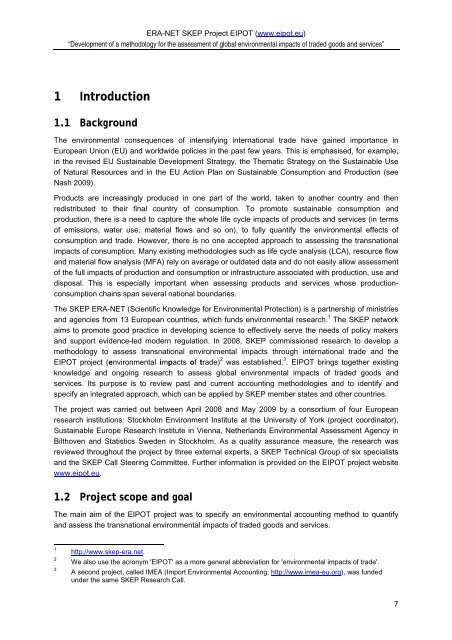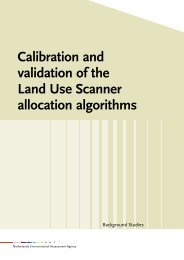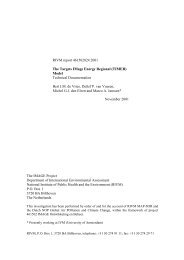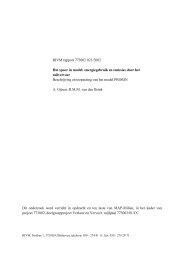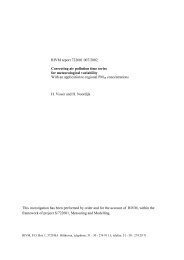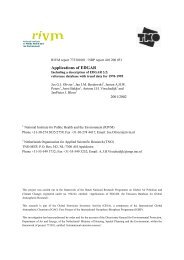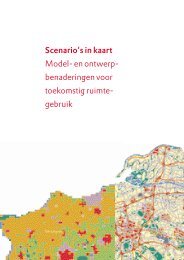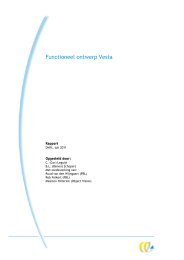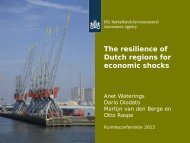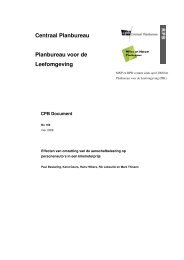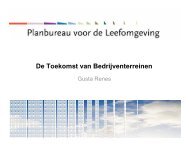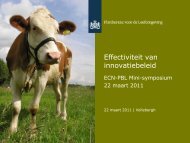EIPOT Final Project Report - Stockholm Environment Institute
EIPOT Final Project Report - Stockholm Environment Institute
EIPOT Final Project Report - Stockholm Environment Institute
Create successful ePaper yourself
Turn your PDF publications into a flip-book with our unique Google optimized e-Paper software.
ERA-NET SKEP <strong>Project</strong> <strong>EIPOT</strong> (www.eipot.eu)<br />
“Development of a methodology for the assessment of global environmental impacts of traded goods and services”<br />
1 Introduction<br />
1.1 Background<br />
The environmental consequences of intensifying international trade have gained importance in<br />
European Union (EU) and worldwide policies in the past few years. This is emphasised, for example,<br />
in the revised EU Sustainable Development Strategy, the Thematic Strategy on the Sustainable Use<br />
of Natural Resources and in the EU Action Plan on Sustainable Consumption and Production (see<br />
Nash 2009).<br />
Products are increasingly produced in one part of the world, taken to another country and then<br />
redistributed to their final country of consumption. To promote sustainable consumption and<br />
production, there is a need to capture the whole life cycle impacts of products and services (in terms<br />
of emissions, water use, material flows and so on), to fully quantify the environmental effects of<br />
consumption and trade. However, there is no one accepted approach to assessing the transnational<br />
impacts of consumption. Many existing methodologies such as life cycle analysis (LCA), resource flow<br />
and material flow analysis (MFA) rely on average or outdated data and do not easily allow assessment<br />
of the full impacts of production and consumption or infrastructure associated with production, use and<br />
disposal. This is especially important when assessing products and services whose productionconsumption<br />
chains span several national boundaries.<br />
The SKEP ERA-NET (Scientific Knowledge for <strong>Environment</strong>al Protection) is a partnership of ministries<br />
and agencies from 13 European countries, which funds environmental research. 1 The SKEP network<br />
aims to promote good practice in developing science to effectively serve the needs of policy makers<br />
and support evidence-led modern regulation. In 2008, SKEP commissioned research to develop a<br />
methodology to assess transnational environmental impacts through international trade and the<br />
<strong>EIPOT</strong> project (environmental impacts of trade) 2 was established. 3 . <strong>EIPOT</strong> brings together existing<br />
knowledge and ongoing research to assess global environmental impacts of traded goods and<br />
services. Its purpose is to review past and current accounting methodologies and to identify and<br />
specify an integrated approach, which can be applied by SKEP member states and other countries.<br />
The project was carried out between April 2008 and May 2009 by a consortium of four European<br />
research institutions: <strong>Stockholm</strong> <strong>Environment</strong> <strong>Institute</strong> at the University of York (project coordinator),<br />
Sustainable Europe Research <strong>Institute</strong> in Vienna, Netherlands <strong>Environment</strong>al Assessment Agency in<br />
Bilthoven and Statistics Sweden in <strong>Stockholm</strong>. As a quality assurance measure, the research was<br />
reviewed throughout the project by three external experts, a SKEP Technical Group of six specialists<br />
and the SKEP Call Steering Committee. Further information is provided on the <strong>EIPOT</strong> project website<br />
www.eipot.eu.<br />
1.2 <strong>Project</strong> scope and goal<br />
The main aim of the <strong>EIPOT</strong> project was to specify an environmental accounting method to quantify<br />
and assess the transnational environmental impacts of traded goods and services.<br />
1<br />
2<br />
3<br />
http://www.skep-era.net.<br />
We also use the acronym '<strong>EIPOT</strong>' as a more general abbreviation for 'environmental impacts of trade'.<br />
A second project, called IMEA (Import <strong>Environment</strong>al Accounting; http://www.imea-eu.org), was funded<br />
under the same SKEP Research Call.<br />
7


